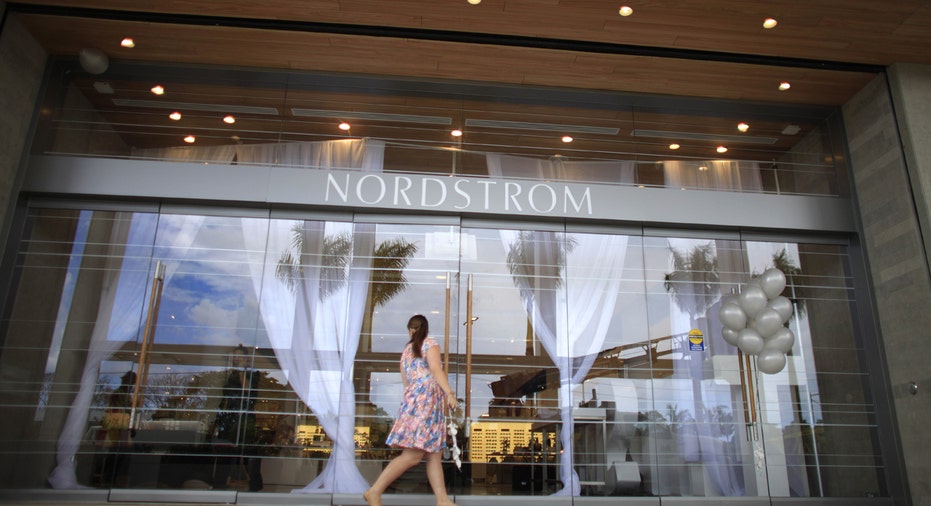Online Bargains Hit U.S. Dept Stores

Slumping same-store sales at upscale U.S. department store operator Nordstrom could point to more than a glut in retailers' inventories, not just a longer-than-usual spell of warm weather and fewer spendthrift tourists.
Trouble at Nordstrom - seen as head-and-shoulder above rivals such as Macy's and cheaper retailers including Kohl's in terms of style, quality and customer service - may indicate a permanent shift in the way people shop and what they buy, analysts said.
While consumers are shying away from buying discretionary items such as clothes and cosmetics, they are spending more on electronics, cars, home goods and travel.
Amazon.com has also revolutionized shopping habits, conditioning shoppers to expect deeper discounts than brick-and-mortar stores can afford. Analysts call this the "Amazon effect."
"The confusing disconnect between the seemingly strong health of the high-end U.S. consumer on paper and actual retailer results is much more a reflection of the tectonic shifts across the retail landscape," Evercore analysts said in a note.
This is related purely to the impact of the digital revolution - the decline of impulse purchases, increased specialization, and the "shift from things to experiences," they said.
Nordstrom followed Macy's on Thursday in reporting same-store sales well below Wall Street expectations and cutting its full-year forecast.
Nordstrom shares were set to open 20 percent lower on Friday.
CAUTIONARY TALE
While some analysts said Nordstrom is well positioned in the longer term, some took a graver stand.
"With a superior business model, in our view, that is half high-end department store, 30 percent off-price, and 20 percent online, this level of deceleration is a potential cautionary tale of the U.S. consumer's health," Deutsche Bank analyst Paul Trussell said about Nordstrom.
Trussell cut his price target by as much as $23 to $45, as did Barclays analyst Joan Payson.
The Commerce Department said last month that U.S. consumer spending edged up 0.1 percent in September, the smallest gain in eight months. Consumer spending accounts for more than two-thirds of U.S. economic activity.
Nordstrom said on Thursday that same-store sales in the three months ended October grew 0.9 percent, breaking a six-quarter streak of mid-single-digit percentage growth.
Six brokerages cut their price targets on Nordstrom's stock. The median price target on the stock is $74, down from $82 a month ago.
Of 30 analysts covering the stock, 11 have "buy" or higher ratings and 16 rate the stock "hold."
Smaller rival Kohl's surprised on Thursday with a profit and sales beat, helped by strong back-to-school sales, but several analysts said the company's turnaround initiatives - smaller shops and sprucing up stores and merchandise - would not be enough to offset the sector-wide slowdown.
J.C. Penney is scheduled to report results later on Friday morning. The company gave a sneak preview of its same-store sales on Wednesday - a rise of 6.4 percent - the best among the retailers that have reported results so far.
(Reporting by Sruthi Ramakrishnan and Tenzin Pema in Bengaluru; Writing by Sayantani Ghosh; Editing by Kirti Pandey)



















